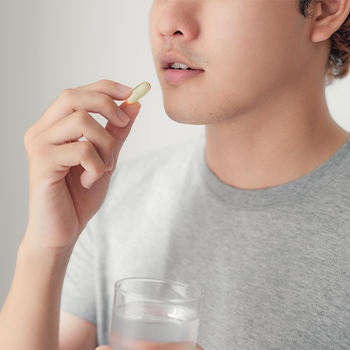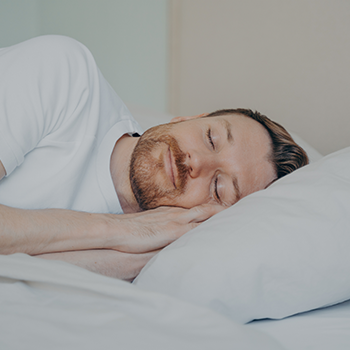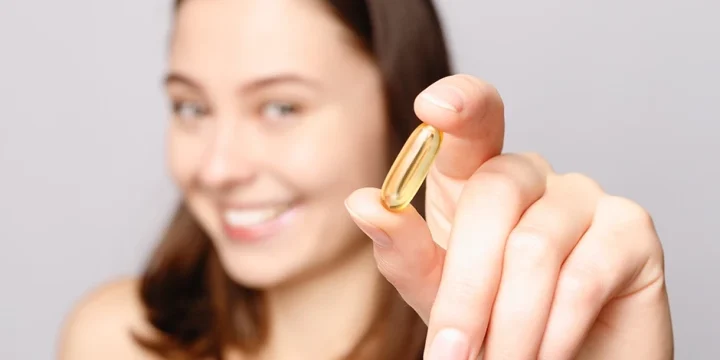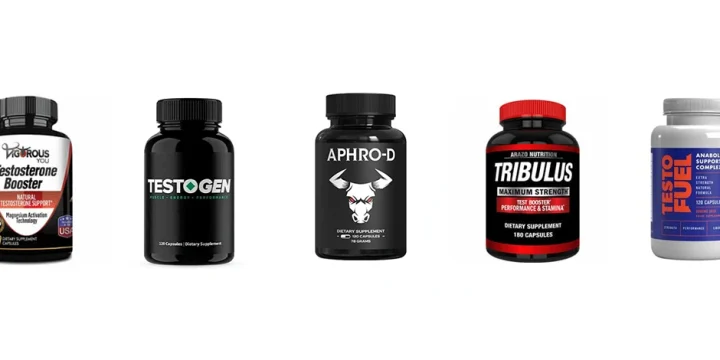Testosterone boosters have become a normal part of supplement stacks for many of my clients.
This is especially the case for older men whose natural testosterone levels have decreased, making it difficult to keep up athletic performance.
But what many of them get wrong is the timing.
Fortunately, there are some clear scientific indicators in exercise physiology that can show us when you would get the best benefits for androgenesis.
And we teamed up with a nutritionist to help us out with the details.
Quick Summary
- To optimize the effects of testosterone boosters, they should be taken before bed, coinciding with the body's natural peak testosterone production time.
- Research from the Journal of Clinical Endocrinology & Metabolism reveals that testosterone production naturally peaks at certain times of the day, underscoring the importance of strategic supplement timing.
- The Cleveland Clinic reports a 1% annual decrease in testosterone production after age 30, highlighting the importance of monitoring hormone levels for middle-aged men.
- In my professional view, integrating testosterone boosters with a nutrient-dense diet is a strategic approach to supporting hormonal health and vitality.
When Should You Take Testosterone Boosters?

The best time to take testosterone boosters is before bedtime, as research suggests that testosterone production peaks during rest, maximizing the effectiveness of these supplements. It’s while your body's resting that the testicles receive a flood of signals to produce more testosterone.
It’s also why sex drive for men tends to peak first thing in the morning (around 8 a.m.).
Research published in the Journal of Clinical Endocrinology & Metabolism supports this claim, indicating that testosterone production in the body peaks at certain times of the day [1].
Yet, some people wrongly believe that taking testosterone booster pills before a workout will improve their athletic performance and post-workout protein synthesis. But even if you tend to have low testosterone levels at the time of day that you head to the gym, taking your testosterone supplements at that time won’t do much for your performance or muscle mass.
It's because testosterone booster's natural ingredients build up over time in your body to slowly increase T-levels. So, expecting a sudden boost like the one you get with a pre-workout supplement doesn't match up with reality.
How Does it Differ from TRT?
Testosterone-boosting supplements differ significantly from testosterone replacement therapy (TRT) in their approaches to optimizing testosterone levels.
Unlike with natural testosterone boosters, this therapy doesn't need much time to start increasing blood testosterone levels and is mostly used with older men or people with medical conditions that are contributing to their decline in testosterone levels.
For a reliable solution to optimize testosterone levels during these critical periods, consider Fountain TRT's testosterone replacement therapy (TRT).
After testing this online therapy and sharing our experience in our Fountain TRT review, we confirmed it helped boost testosterone to a healthy, normal level.
When Does The Body Create Most Testosterone?

The body creates most testosterone primarily during the night while you're asleep, as part of the natural hormonal rebalancing and cellular repair processes.
Throughout the day, the body converts testosterone to produce estrogen, and that’s why testosterone levels decrease as the day goes on.
Then, at night, when you’re asleep, testosterone production kicks into action while your body is resting.
Here’s what happens.
When you get to sleep, your body starts to increase those processes that involve repairing cells. That includes skin cells, muscles, bone density, and even sperm production. The reason for this is all down to a rebalancing of hormone levels.
As you sleep, the stress hormone cortisol goes down, and a higher estrogen level signals that there’s a low T-count. The testicles then kick into action to bring testosterone back to normal levels.
That’s precisely why you’ll get much better results from supplements when you encourage your testes to be more active at a time when nature designed them to be active.
Related: What Is the Relationship Between Sleep and Testosterone?
Can You Take Testosterone Boosters Long-Term?

“A normal male testosterone level peaks at about age 20, and then it slowly declines. Testosterone levels above or below the normal range are considered by many to be out of balance.”
- Charles Patrick Davis, MD, Medicinenet.com
Generally speaking, long-term use of natural products shouldn’t have major side effects. Things like aggressive mood swings, aka roid rage, or testicular shrinkage are linked to anabolic steroid use.
Many of my clients schedule a blood test with their doctor once or twice a year. And if they see lower T-levels and higher stress hormone levels, then they go back on a booster for a few months.
This is why, when considering long-term use of testosterone boosters, it's essential to consult with a healthcare professional to monitor your hormone levels regularly and ensure that the supplement is suitable for your individual needs and health condition.
How Long Does It Take For Testosterone Boosters To Work?

Testosterone boosters typically take about 4 to 8 weeks to start showing noticeable effects in improving testosterone levels and overall health. Some men notice improved sexual health first, followed by finding it easier to lose weight and build up more muscle tissue.
You may also observe a decrease in cortisol levels, which is associated with a reduced risk of stress and an increase in overall vitality, according to a 2005 study published in the Journal of Sports Science and Medicine [3].
Within about 2 to 3 months, you should also start noticing that your body feels healthy and more energized.
And to potentially enhance the effectiveness of T-boosters, it's important to recognize the complementary role of your diet.
My experience with clients has shown that incorporating foods abundant in vitamin D, magnesium, and zinc can significantly improve testosterone absorption, thereby maximizing the advantages of their supplement regimen.
Either way, do not anticipate immediate health improvements within the initial days of starting testosterone boosters.
References:
- https://academic.oup.com/jcem/article/86/3/1134/2847605
- https://health.clevelandclinic.org/declining-testosterone-levels/
- https://www.ncbi.nlm.nih.gov/pmc/articles/PMC3880087/
About The Author
You May Also Like






